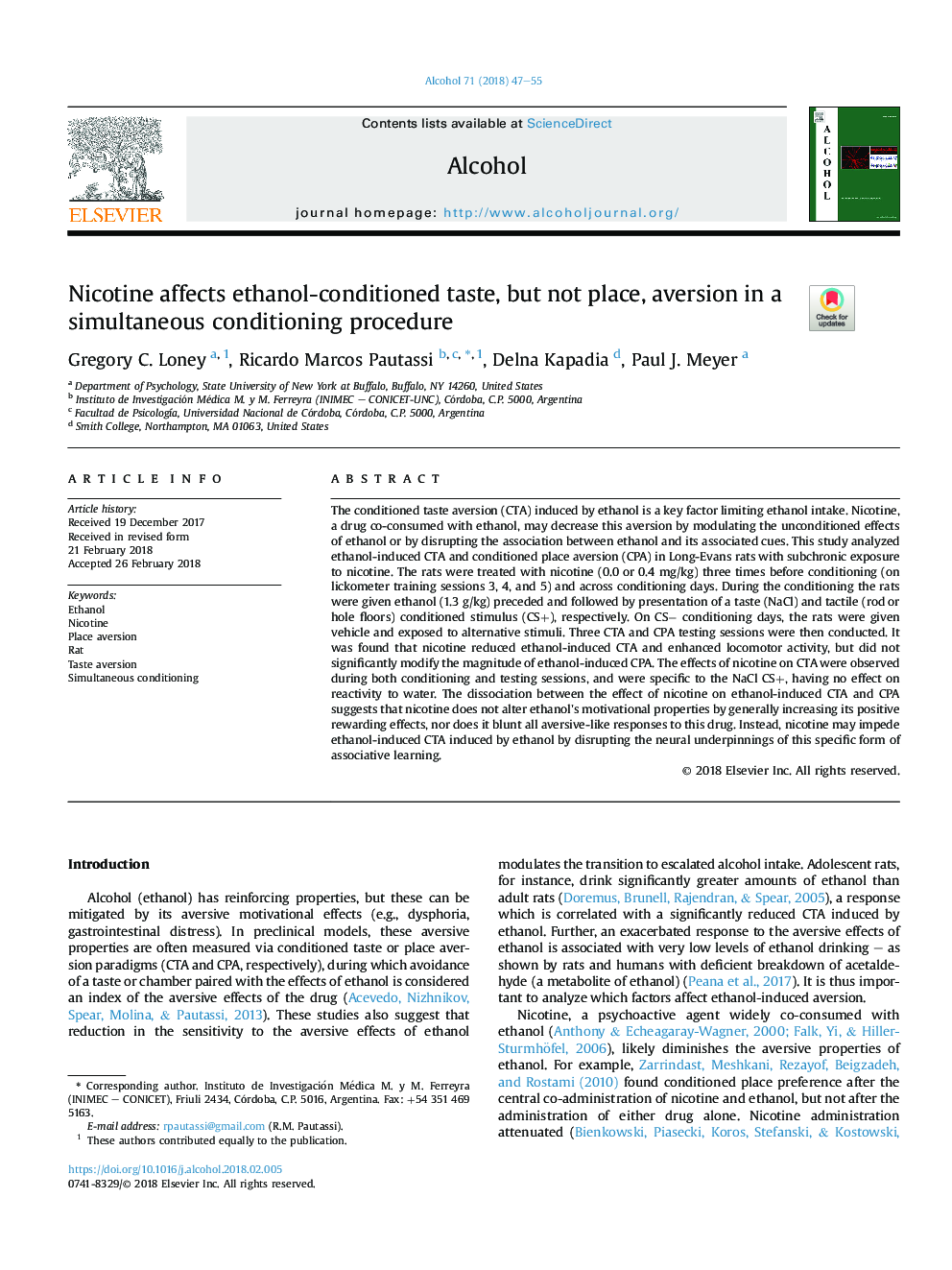| Article ID | Journal | Published Year | Pages | File Type |
|---|---|---|---|---|
| 7501336 | Alcohol | 2018 | 9 Pages |
Abstract
The conditioned taste aversion (CTA) induced by ethanol is a key factor limiting ethanol intake. Nicotine, a drug co-consumed with ethanol, may decrease this aversion by modulating the unconditioned effects of ethanol or by disrupting the association between ethanol and its associated cues. This study analyzed ethanol-induced CTA and conditioned place aversion (CPA) in Long-Evans rats with subchronic exposure to nicotine. The rats were treated with nicotine (0.0 or 0.4Â mg/kg) three times before conditioning (on lickometer training sessions 3, 4, and 5) and across conditioning days. During the conditioning the rats were given ethanol (1.3Â g/kg) preceded and followed by presentation of a taste (NaCl) and tactile (rod or hole floors) conditioned stimulus (CS+), respectively. On CSâ conditioning days, the rats were given vehicle and exposed to alternative stimuli. Three CTA and CPA testing sessions were then conducted. It was found that nicotine reduced ethanol-induced CTA and enhanced locomotor activity, but did not significantly modify the magnitude of ethanol-induced CPA. The effects of nicotine on CTA were observed during both conditioning and testing sessions, and were specific to the NaCl CS+, having no effect on reactivity to water. The dissociation between the effect of nicotine on ethanol-induced CTA and CPA suggests that nicotine does not alter ethanol's motivational properties by generally increasing its positive rewarding effects, nor does it blunt all aversive-like responses to this drug. Instead, nicotine may impede ethanol-induced CTA induced by ethanol by disrupting the neural underpinnings of this specific form of associative learning.
Related Topics
Life Sciences
Biochemistry, Genetics and Molecular Biology
Biochemistry
Authors
Gregory C. Loney, Ricardo Marcos Pautassi, Delna Kapadia, Paul J. Meyer,
